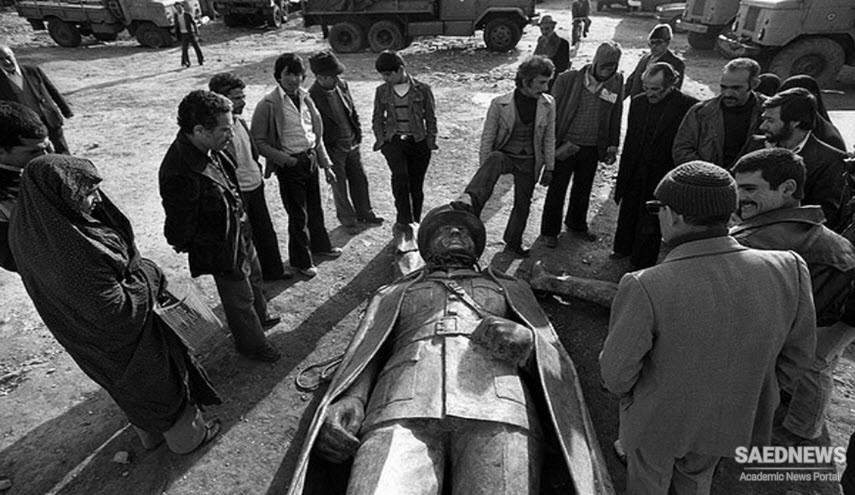Both law and reason require that we not permit governments to retain this non-Islamic or anti-Islamic character. The proofs are clear. First, the existence of a non-Islamic political order necessarily results in the non-implementation of the Islamic political order. Then, all non-Islamic systems of government are the systems of kufr since the ruler in each case is an instance of tāghūt, and it is our duty to remove from the life of Muslim society all traces of kufr and destroy them. It is also our duty to create a favorable social environment for the education of believing and virtuous individuals, an environment that is in total contradiction with that produced by the rule of tāghūt and illegitimate power. The social environment created by tāghūt and shirk20 invariably brings about corruption such as you can observe now in Iran, the same corruption termed “corruption on earth.” This corruption must be swept away, and its instigators should be punished for their deeds. It is the same corruption that the Pharaoh generated in Egypt with his policies, so that the Qur’an says of him, “Truly, he was among the corruptors” (28:4). A believing, pious, just individual cannot possibly exist in a socio-political environment of this nature, and still maintain his faith and righteous conduct. He is faced with two choices: either he commits acts that amount to kufr and contradict righteousness, or in order not to commit such acts and not to submit to the orders and commands of tāghūt, the just individual opposes him and struggles against him in order to destroy the environment of corruption. We have in reality, then, no choice but to destroy those systems of government that are corrupt in themselves and also entail the corruption of others, and to overthrow all treacherous, corrupt, oppressive, and criminal regimes.
This is a duty that all Muslims must fulfill, in every one of the Muslim countries, in order to achieve the triumphant political revolution of Islam. We see, too, that together, the imperialists and the tyrannical self-seeking rulers have divided the Islamic homeland. They have separated the various segments of the Islamic ummah from each other and artificially created separate nations. There once existed the great Ottoman State, and that, too, the imperialists divided. Russia, Britain, Austria, and other imperialist powers united, and through wars against the Ottomans, each came to occupy or absorb into its sphere of influence, part of the Ottoman realm. It is true that most of the Ottoman rulers were incompetent, that some of them were corrupt, and that they followed the monarchical system. Nonetheless, the existence of the Ottoman State represented a threat to the imperialists. It was always possible that righteous individuals might rise up among the people and, with their assistance, seize control of the state, thus putting an end to imperialism by mobilizing the unified resources of the nation. Therefore after numerous prior wars, the imperialists at the end of World War I divided the Ottoman State, creating in its territories about ten or fifteen petty states. Then each of these was entrusted to one of their servants or a group of their servants, although certain countries were later able to escape the grasp of the agents of imperialism.


 Islamic Governance a Requirement of National Security and Territorial Integrity
Islamic Governance a Requirement of National Security and Territorial Integrity














































